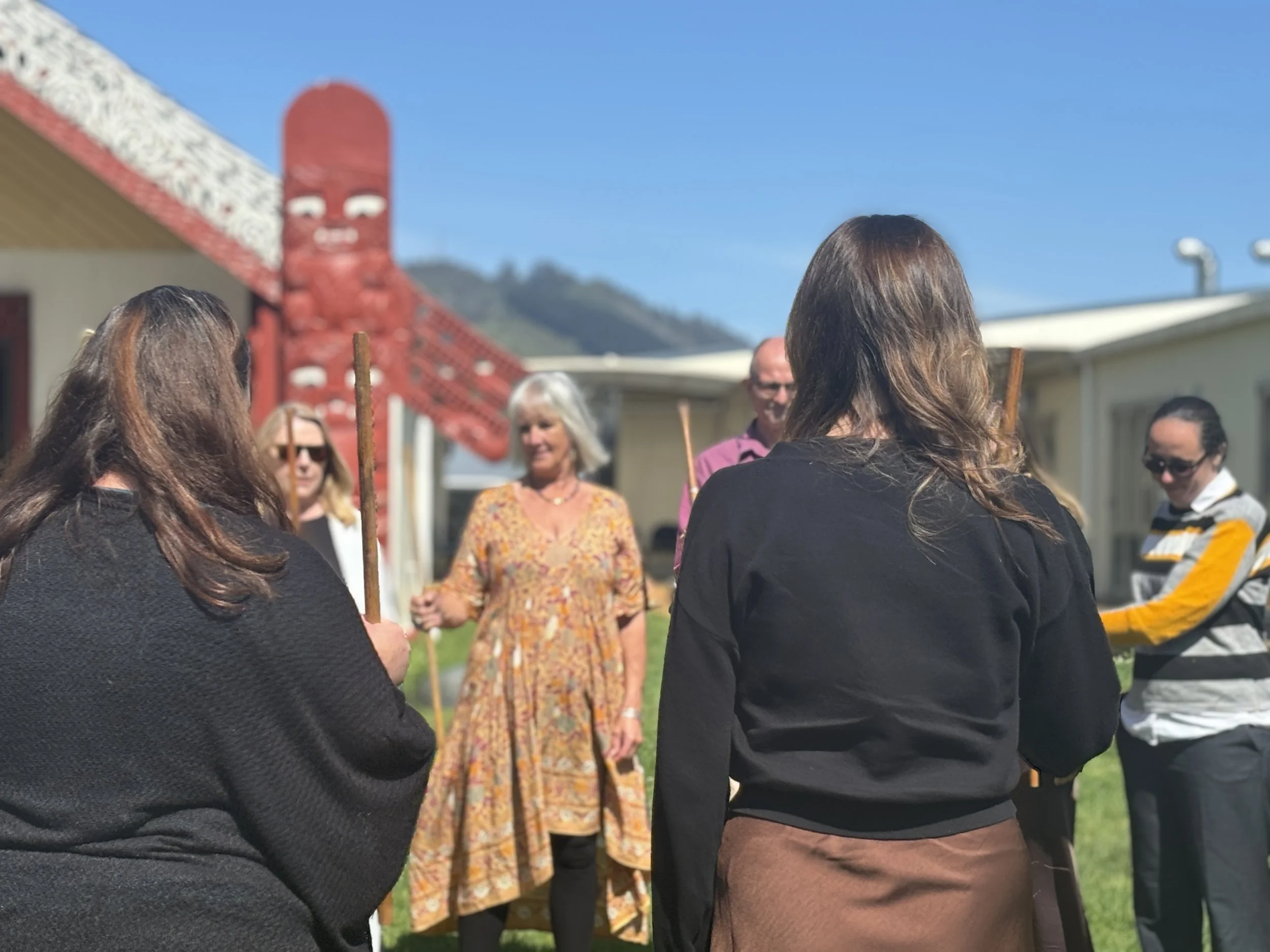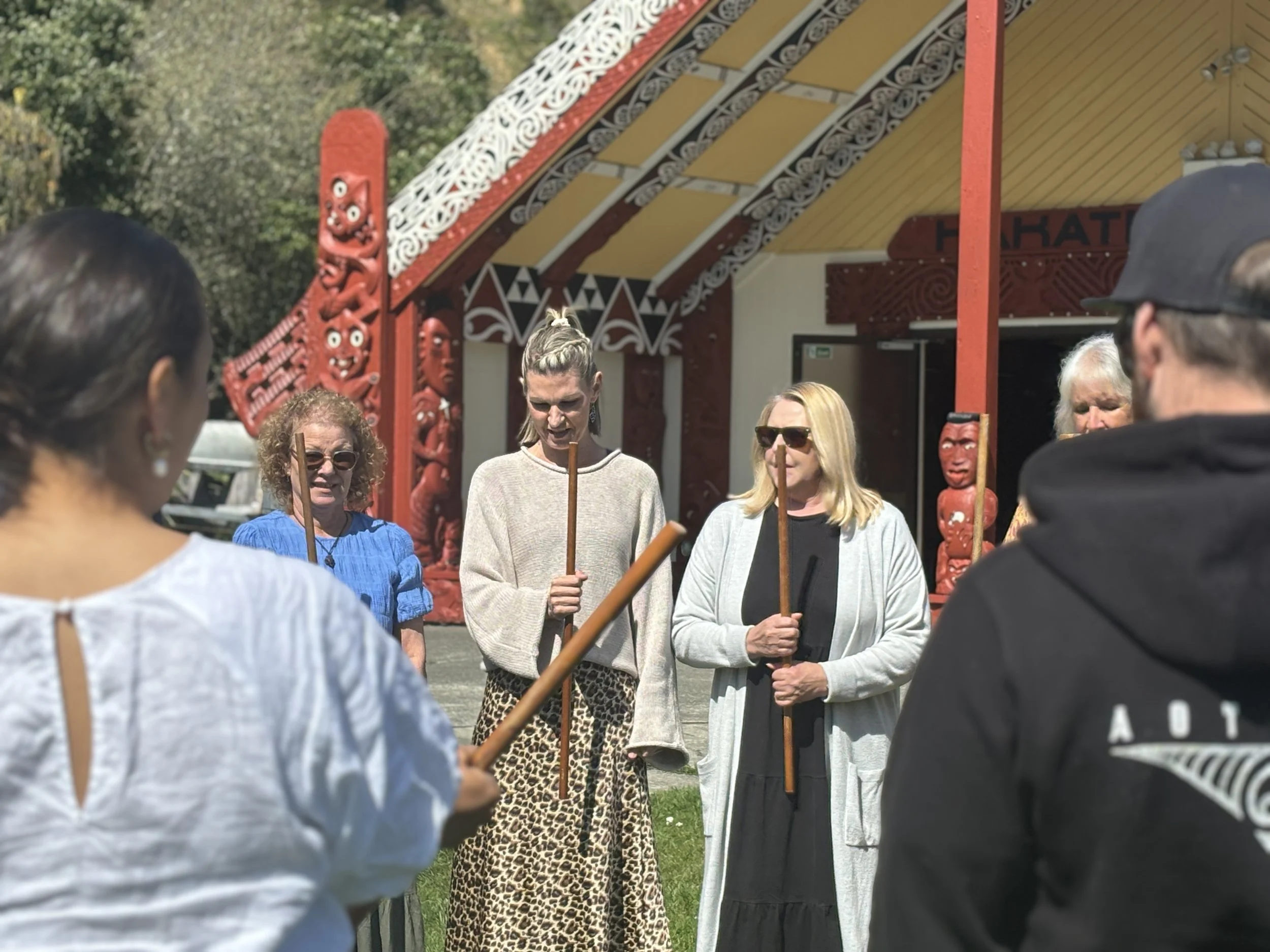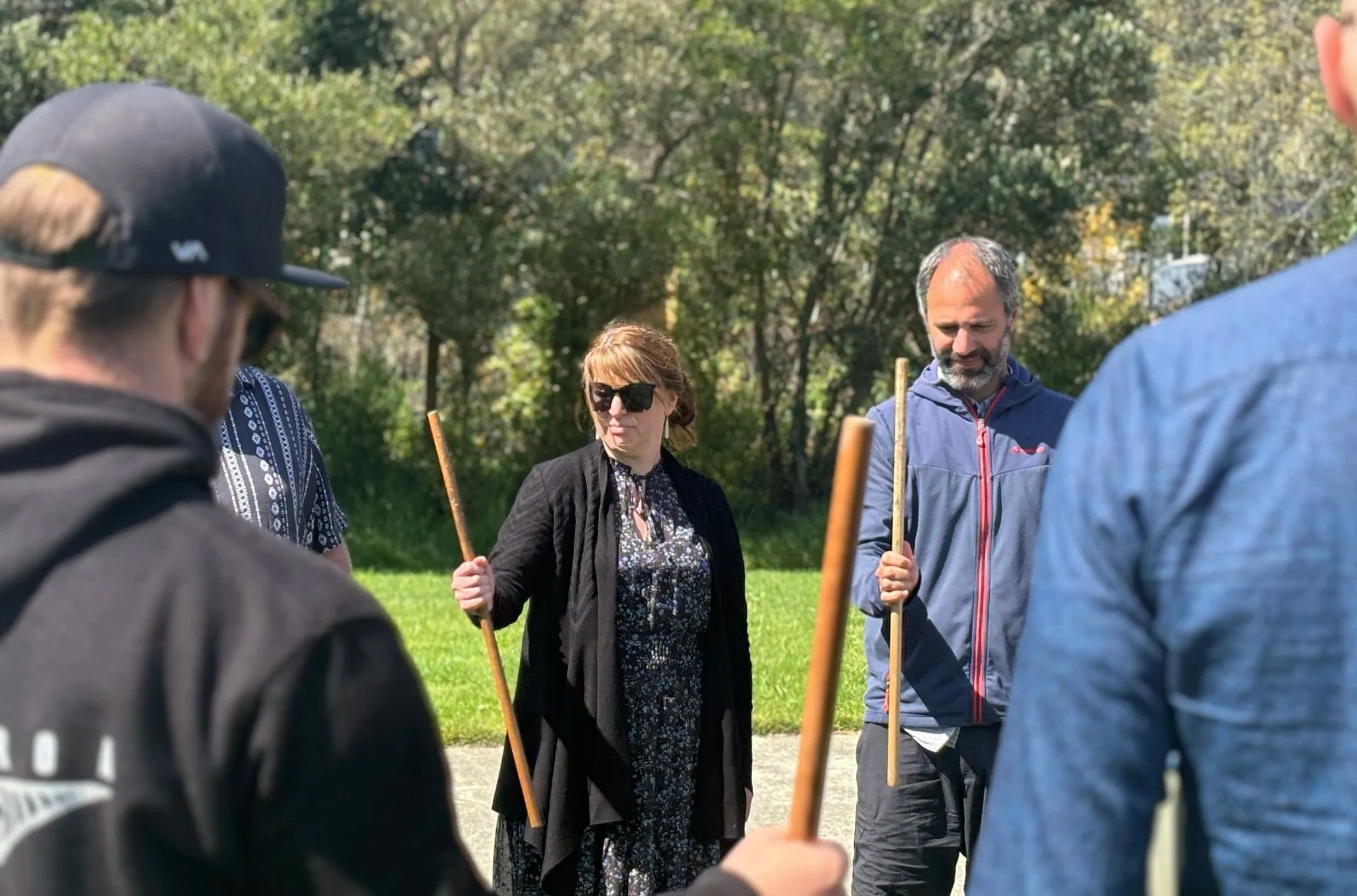RISE continues its cultural journey
RISE is developing and deepening its cultural confidence as a Tangata Tiriti organisation.
RISE is working with facilitators from Thirdspace Aotearoa for a second year to uphold the mana of te ao Māori in our mahi and apply Te Tiriti-led practice across the organisation.
RISE is deeply committed to helping all its clients feel comfortable and respected when they engage with us. We also want to build our staff’s confidence and capability in bicultural spaces.
Thirdspace Aotearoa’s Jen Bennett says RISE has built on its foundational work undertaken in 2024.
Last year RISE staff and leaders learnt about Aotearoa histories, Te Tiriti o Waitangi, and the impacts of colonisation across time. In addition to personal and professional reflections and skill-building, Jen says RISE staff applied their knowledge of biculturalism, “shifting from intention into action.”
Staff built confidence with their te reo, through working on their paku mihi and pepeha (personal introductions). RISE staff explored and deepened their understanding of karakia (prayer/blessing), pūrākau (cultural narratives), and learnt more about tikanga (correct procedure) in preparation for a marae visit.
This year Thirdspace Aotearoa has continued to facilitate sessions as part of RISE’s team days with RISE’s new Hikitia! team also participating in 2025.
RISE visited Whakatū Marae last year and will visit Te Awhina Marae in Motueka this year as part of its work to uplift the mana of te ao Māori in our mahi and apply Te Tiriti-led practice across the organisation.
Jen says now RISE staff demonstrate understanding of biculturalism and cultural awareness, and their positioning of humility in this space is ongoing; staff are working collaboratively exploring mātauranga Māori (Māori knowledge) and tikanga Māori, identifying how concepts can frame and support inclusive and responsive practice through cultural supervision.
Cultural Supervision usually takes place in a one-to-one settings or small groups, but RISE has chosen to do as a group with the whole team, which enables shared knowledge building and supports relationships across the team, Jen says.
Dr Annie Poutu Fay (Ngāti Porou, Ngāti Maniapoto, Ngā Puhi) and Hana Park (Te Ātiawa-o-Te-Waka-ā-Māui) faciltitate and lead RISE’s cultural supervision sessions. Annie and Hana have extensive experience in Social Work, mātauranga Māori, and tutor courses at NMIT.
RISE programme development coordinator Aaron Agnew says working with Thirdspace “had been a great stimulation to conversations in our general working day and has made it part of our real-world practice. Staff have been open to growth and challenges on our continuing journey in this area.”
Aaron says Jen and Thirdspace have been very supportive.
“They have allowed RISE to move together as an organisation so it doesn’t matter which part of RISE you connect with or which clinician you might see, we are all working from the same informed place and are committed to the journey ahead.”
RISE staff at Whakatū Marae on their visit as part of their work building understanding of biculturalism, Te Tiriti o Waitangi and cultural practices.
Cultural supervision supports cultural safety for RISE staff and clients. The regularity of sessions supports staff to work collaboratively and reflect on concepts, as well as apply them to their practice and bring scenarios forward to learn from alongside others in a trusting environment.
Jen says cultural supervision is critical to help provide culturally safe and responsive services
“It’s a completely different way of challenging your practice.”
The cultural practice work is encouraging RISE staff to move from being reflective practitioners to being “reflexive” or responding and adapting in the moment when working with a client, rather than reflecting later on what you could have done, she says.
RISE will visit Te Āwhina marae in Motueka later this year. RISE’s board will also attend training sessions to support organisational-wide understanding of the significance of the work RISE is doing at operational and strategic levels, Jen says.
Jen says RISE staff are an awesome team who are keen to learn and are genuine in their commitment to perspective seeking and applying their understanding and knowledge, whilst acknowledging there is still much yet to learn.
“There are people within the kaimahi (staff) at all different stages of their own personal whakapapa journey, either as parents or grandparents of tamariki Māori, and some who whakapapa Māori themselves. Others have moved here from overseas.
“It’s a really interesting space to be able to draw out those different experiences of how we’re connecting into understanding biculturalism.”
She says the ultimate aim is to cultivate an internal, self-sustaining capacity for cultural supervision and leadership within RISE, enabling staff to teach and support one another in this space.
“In an ideal world we (facilitators) shouldn’t have a job.”
RISE Practice Lead Joelene Whitfield and Development Coordinator Aaron Agnew at Whakatū Marae.



